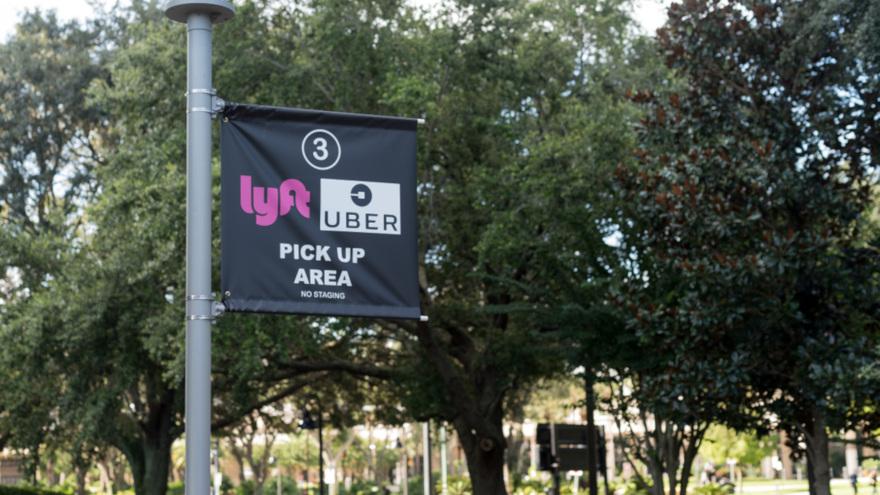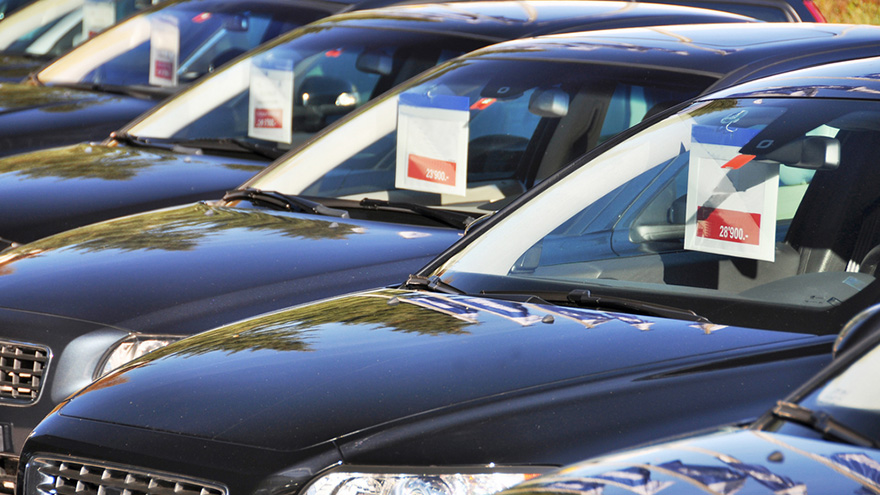The Justice Department received guilty pleas from an east Texas buy-here, pay-here dealer, his wife and son in connection with a scheme to use the dealership as a cog in an illegal gambling machine that lasted more than 30 years.
The trio pleaded guilty to federal violations in a case investigated by Homeland Security Investigations and the Internal Revenue Service, Criminal Investigation, and prosecuted by assistant U.S. Attorneys Christopher Tortorice and Joseph Batte.
According to a news release from the Justice Department, Larry Tillery, Judy Tillery and Brian Tillery, all of Beaumont, appeared in federal court on June 25 before U.S. Magistrate Judge Keith Giblin to enter their pleas to an Information.
Larry Tillery pleaded guilty to engaging in monetary transactions in property derived from specified unlawful activity and tax evasion. Judy Tillery pleaded guilty to structuring of financial transactions to evade reporting requirements. Brian Tillery pleaded guilty to engaging in monetary transactions in property derived from specified unlawful activity.
According to information presented in court, Larry Tillery was engaged in the business of accepting illegal wagers on sporting events from 1985 until April 2017, and was his primary occupation during that time. Tillery owned and operated Daylight Motors, an independent dealership, and Lamar Capital, the store’s related finance company. Officials said Tillery used these two companies as a front to launder illicit proceeds from his illegal gambling enterprise.
The Justice Department indicated Tillery used a website to receive and track wagers from his betting clients, allowing his bettors to place wagers on sporting events, including professional and collegiate basketball, baseball and football games.
Officials continued that Judy Tillery assisted her husband in laundering cash proceeds of his illegal bookmaking activities by depositing cash into her personal bank account at Beaumont Community Credit Union in Beaumont, Texas, and then writing checks to bank accounts controlled by her husband. Judy Tillery structured these cash deposits in amounts less than $10,000 in an attempt to evade federal currency transaction reporting requirements.
DOJ went on to explain Brian Tillery aided the bookmaking enterprise by:
— Collecting money from sports bettors and making payments to bettors on behalf of his father
— Checking the online wagers on a regular basis to keep Larry Tillery aware of what bets were placed on which games
— Accepting illegal gambling funds from Larry Tillery and making wire transfers to pay illegal gambling debts for Larry Tillery
— Mailing packages of currency in excess of $10,000 via the United States Postal Service at the request of Larry Tillery, which was derived from illegal gambling activities.
“Larry Tillery knew that despite the fact that he was violating Texas state and federal law, federal law nonetheless required him to register as a bookmaker with the Internal Revenue Service and to file monthly excise tax returns to report total wagers he accepted during the month,” the Justice Department said.
“Tillery also knew that he was required to pay gross wagering excise taxes of 2% on wagers he accepted each month. But, Tillery failed to report or pay any taxes to the IRS based on the wagers he accepted each month,” the agency continued.
During September through November of 2016, officials said Larry Tillery accepted at least 450 wagers totaling $5,060,150. These wagers are subject to the 2% federal gross wagering excise tax and Larry Tillery evaded gross excise wagering taxes of $29,717 in September 2016, $34,423 in October 2016 and $37,063 in November 2016 for a three-month total of $101,203.
Between 2011 and 2016, the Justice Department said Tillery accepted at least $52 million in illegal wagers on sporting events. Officials noted Tillery did not report these wagers to the IRS or pay gross excise taxes.
Officials calculated the gross wagering taxes that resulted from wagers Larry Tillery accepted between 2011 and 2016 total $1,040,000. They added this tax due figure includes $101,203 in gross wagering excise taxes for wagers accepted in September through November 2016.
The investigation traced a total of 125 financial transactions in excess of $10,000 derived from illegal gambling that utilized the United States banking system. These financial transactions totaled more than $32 million between 2010 and 2016.
As part of the plea agreement, the Justice Department said Larry and Judy Tillery agreed to forfeit $1,738,455 in cash seized during the investigation, numerous luxury watches and pieces of jewelry and several professional sports memorabilia items.
They also agreed to a money judgment of $32,758,541, representative of illegal wagers the Tillery sports gambling enterprise during the relevant time period.
“The Tillerys ignored state and federal gambling laws and profited tremendously from a criminal enterprise,” U.S. Attorney Joseph Brown said. “We intend to collect every bit of the money judgment that will be issued against them, and we expect Larry Tillery’s prison sentence to send a message to those who profit from illegal bookmaking.”
Under federal statutes, Larry Tillery faces up to 10 years in federal prison. Judy Tillery and Brian Tillery each face up to five years in federal prison.
The maximum statutory sentences prescribed by Congress is provided her for information purposes, as the sentences will be determined by the court based on the advisory sentencing guidelines and other statutory factors.
Officials said sentencing hearings will be scheduled after the completion of presentence investigations by the U.S. Probation Office.
“For more than 30 years this family operated one of the largest illegal sports gambling and money laundering operations in the U.S.,” said Assistant Special Agent in Charge (ASAC) Mary Magness, Homeland Security Investigations (HSI) Houston. “Today’s pleas underscore HSI’s commitment to aggressively investigate financial crimes and bring offenders to justice.”
As part of his plea agreement, Brian Tillery agreed to forfeit $241,176 in U.S. currency seized during the investigation and a residence valued at approximately $600,000 located on Christina Court in Beaumont. He has also agreed to a money judgment of $700,000.
“Concealing or transferring assets in an attempt to evade taxes is a crime, and IRS-CI is committed to prosecuting individuals that do so,” said Rusty Lee, Assistant Special Agent in Charge, IRS Criminal Investigation.
National Independent Automobile Dealers Association members now have another online outlet to reach potential vehicle buyers who might already have used this particular platform to find shoes, furniture or other goods.
OfferUp, one of the largest mobile marketplaces in the U.S. for local buying and selling, is now a Bronze-level National Corporate Partner of NIADA.
Since 2011, OfferUp insisted that it has paved the way for a simpler, more trusted way to buy and sell locally. Every year, the site is involved in millions of transactions on items like clothing, furniture and cars and trucks.
To support the popularity of auto sales, OfferUp created OfferUp Autos, a platform of innovative features to make automotive transactions easier for private buyers and sellers as well as dealerships.
“More than 44 million people user OfferUp annually to buy and sell locally, and we estimate that last year nearly 10 percent of used-car sales in the country flowed through our digital marketplace,” OfferUp director of automotive product Andrea Moro said.
“OfferUp Autos improves the automotive marketplace experience by giving customers digital tools to help them buy or sell their next set of wheels in a faster and more efficient way,” Moro continued.
OfferUp Autos’ Verified Dealers program includes features to help dealers be more successful. OfferUp is mobile-first and has local proficiency, providing dealers with a destination to advertise where buyers are already shopping.
Dealers who list on OfferUp have reported an increase in foot traffic and sales. Statistics show more than 30% of vehicles sold on OfferUp sell within two days, and more than 50% sell within a week.
The OfferUp Autos platform includes:
• A Verified Dealer profile that gives dealerships an official, trusted presence on OfferUp
• Optional integration with the dealer’s inventory feed to seamlessly to post listings
• Advertising solutions to gain additional exposure and drive more leads
• Tools to make it simpler to interact with prospective buyers, including click-to-call, the ability to freely share pictures, phone numbers and website URLs in chat
OfferUp pointed out that it is constantly evolving its tools to drive more traffic to Verified Dealers. The program now includes a new machine learning-based Top Lead indicator to identify ready-to-buy prospects, as well as specialized buy-here, pay-here products.
“OfferUp has revolutionized the local digital marketplace landscape, ensuring a trustworthy and transparent selling and buying experience,” NIADA senior vice president of member services Scott Lilja said.
“Along with major new investments in machine learning lead generation tools and customized BHPH member dealer solutions, OfferUp is truly on the cutting edge of the digital and mobile auto retail marketplace — a tremendous new resource for our member dealers,” Lilja went on to say.
For more information on OfferUp Autos, visit offerup.com/autos.
It’s been a busy May for Pennsylvania attorney general Josh Shapiro as his office made two moves involving independent dealerships in the Keystone State.
Earlier this month, Shapiro reached a settlement approaching $51,000 with a dealership in Mechanicsburg, Pa., involving seven allegations.
Then last week, the AG’s office filed a lawsuit against an operator with stores in Moosic, Scranton and Wilkes-Barre for allegedly violating eight parts of the state’s consumer protection law.
According to a news release, Shapiro finalized a $50,892.29 settlement that allows restitution for customers of New Kingstown Auto, owner Harry Laughman and employee Dana (Blosser) San.
The settlement, in the form of a petition requiring court approval, comes as a result of a lawsuit filed by the Office of Attorney General’s Bureau of Consumer protection alleging that the defendants:
— Advertised used vehicles for sale without disclosing the business name and address of the advertiser or the word “dealer.”
— Sold a used motorcycle as having 69,000 miles, when in fact the motorcycle had 153,000 miles.
— Sold vehicles without a valid dealer or salesperson license.
— Failed to forward to Pennsylvania Department of Transportation money and forms submitted by a consumer who purchased a vehicle with temporary registration tags in timely manner.
— Engaged in lease transactions with consumers that did not include required lease disclosures and were not compliant with applicable laws.
— Accepted installment payments from consumers on vehicles without holding the required installment seller license.
— Provided a consumer an installment sale contract that did not comply with requirements.
“Unscrupulous business dealers can’t dodge our Bureau of Consumer Protection,” Shapiro said Attorney General Josh. “I’m grateful for their hard work to put a stop to the defendants’ shady practices and deliver results for the people of Pennsylvania.”
According to that news release, one consumer, Richard Ridley of Carlisle, Pa., purchased a vehicle from New Kingstown Auto in 2017. The attorney general said assurances from the dealership indicated that the store would fix outstanding issues with the vehicle such as a check engine light and cracked windshield. However, Ridley said the dealership did not complete the repairs.
The attorney general also said Ridley paid his installment contract early but was then told by the defendants that he voided his contract and was forced to enter into a new purchase agreement that was unlawfully executed. Ridley is now in line to receive more than $800 in restitution for the repairs he had to pay for himself.
“I was manipulated by New Kingstown Auto every step of the way and provided false information about my car, my lease agreement, and the services the dealership would provide,” Ridley said in the release. “As a result, I paid hundreds of dollars out of pocket on repairs. The experience was incredibly stressful, but I’m grateful to the Office of Attorney General’s Bureau of Consumer Protection for their hard work to hold this dealership accountable and obtain restitution for consumers like me.”
BHPH Report obtained a copy of the lawsuit Shapiro’s office has taken against RCMS Auto Sales and owner Thomas Hashem.
According to the 73-page lawsuit that can be viewed here, the dealership allegedly has broken Pennsylvania consumer protection law, including:
— Misrepresenting the condition and roadworthiness of vehicles sold.
— Failing to disclose to purchasers that some vehicles were not roadworthy as the vehicles were unable to pass state inspection.
— Misrepresenting in advertisements, including website and dealer lot signage, that defendants have a credit restoration program to help customers restore their credit when in fact defendants do not have a credit restoration program.
— Misrepresenting that defendants have performed a “61-point” pre-purchase inspection on all vehicles and all vehicles are serviced by a licensed service technician when, in fact, the Commonwealth believes that the defendants do not perform a 61-point pre-purchase inspection nor are vehicles serviced by a licensed service technician.
— Misrepresenting to consumers that vehicles purchased were in a condition acceptable to qualify for a third-party warranty that defendants advertised and sold to consumers.
— Misrepresenting that a warranty was placed on “every vehicle” and that defendants service their warranties when in fact, in at least some instances, the vehicles sold were not warrantable due to pre-existing mechanical issues that defendants knew or should have known existed
— Failing to service warranties or otherwise remedy consumer vehicles within a reasonable amount of time without charge.
— Failing to include in at least six sales of vehicles whether the vehicles were new or used and a description of the prior usage of the defendants’ bill of sale.
The state AG is looking for RCMS Auto Sales to pay civil penalties $1,000 for each past and present violation of law. And since some allegations involve consumers age 60 and older, the Shapiro’s office is seeking $3,000 per violation for matters involving that demographic.
And along with surrendering dealer licenses, Shapiro’s lawsuit seeks costs for law enforcement’s investigation and prosecution.
It’s a scenario pretty common to buy-here, pay-here dealerships. Store management tries to satisfy a dispute with an unhappy customer, but that individual turns to the internet to vent — and perhaps badmouth — about the dealer and its personnel.
It might cross operators’ minds to put a clause in an installment contract prohibiting such activities, but the National Automobile Dealers Association sent strong suggestion against that strategy stemming from what the Federal Trade Commission (FTC) could do as a result.
NADA recapped this week that the FTC announced its first enforcement action pursuant to the recently enacted federal Consumer Review Fairness Act (CRFA), suing three businesses and two business owners for allegedly violating the CRFA. The FTC alleged that the companies used form contracts that included clauses barring customers from sharing negative comments and demanded financial penalties (damages and attorney’s fees) against customers who did so.
The regulator said the businesses — including an HVAC contractor, flooring seller and horseback riding company — have reached a preliminary agreement with the FTC to stop using the contract provisions and to inform their customers that the provisions cannot be enforced.
When NADA spotted the development, the association said via a daily e-newsletter, “Under the CRFA, dealerships are prohibited from including provisions in any ‘form’ contract that seek to restrict people from posting honest reviews about the dealership, or penalize them for doing so. This includes any consumer contract or agreement entered at the dealership or in online terms and conditions.
“The CRFA protects a broad variety of consumer assessments including people’s ability to share their honest opinions about a business’s products, services, or conduct, in any forum, including social media. A business can be found to have violated the CRFA whether they actually seek to enforce such a contract provision or not,” NADA continued in special material to help stores.
In a separate blog post, the FTC also shared a trio of recommendations for dealerships and other businesses in order to comply with the CRFA. They included:
1. Review your form contracts.
Has it been a minute since you’ve read your form contracts? What do they say about consumer reviews or other communications covered by the CRFA? And where did the language come from in the first place? If you haven’t given your contracts the once-over since the CRFA took effect on March 14, 2017, it’s time to take a closer look. Read Consumer Review Fairness Act: What Businesses Need to Know to review the basics.
2. The FTC and states can enforce the CRFA whether or not a company follows through on its threats.
You’ve probably seen press reports about companies that have tried to enforce illegal provisions against consumers. It’s not the kind of publicity any business wants. But it’s a mistake to think you’re in the clear if you include those provisions in form contracts, but haven’t followed through against consumers. The CRFA establishes that the existence of an illegal contract provision alone could subject a company to a federal or state enforcement action — and the consequences can go beyond FTC or court orders. Companies can be subject to financial penalties for knowing violations of the CRFA.
3. The FTC Act also applies.
Courts have looked at companies’ practices related to consumer reviews through the lens of the FTC Act’s prohibition on unfair or deceptive practices. Of course, companies should comply with the Consumer Review Fairness Act, but questionable conduct also can be challenged under Section 5 of the FTC Act.
Optimism among small business owners — which certainly can include independent and buy-here, pay-here dealerships — is strong, according to the latest quarterly Wells Fargo/Gallup Small Business Index based on a survey conducted during the first five days of April.
Survey results released this week also revealed that more than half of business owners reported little impact to their tax situation along with an upbeat sense about credit availability.
Wells Fargo — a member of the Auto Intel Council — reported strong overall optimism correlated with high levels of confidence in present and future financial situations as well, with scores of 62 and 67 respectively. Additional indicators that typically drive higher optimism had strong showings as well.
Bank officials noted 52% of respondents described revenues as increasing during the past 12 months, while 74% said the same of the previous year’s cash flow rating.
Estimates of these indicators over the next 12 months also had strong scores with 58% of respondents expecting gains in revenues, while 79% expect a somewhat or very good cash flow rating.
When asked how they would rate the current state of the national economy, 63% responded it is either “good” or “excellent.”
Wells Fargo head of customer segments Andy Rowe said, “What we’re hearing from business owners regarding their revenues and cash flow are encouraging indicators, particularly in a time when many are looking closely at their finances for tax season.
“Combining these insights with their overall outlook on the economy and a healthy interest in obtaining credit, paints a promising picture for businesses as they move forward through 2019,” Row continued.
A deeper look at taxes
Wells Fargo highlighted this quarter’s survey specifically looked at how small business owners felt about their tax situation a year after the reformed tax regulations took effect.
Nearly half of business owners (48%) indicated that the recent legislation had little effect on their 2018 taxes, while 51% said the same regarding impacts to their business overall.
When asked how their total tax bill for 2018 would be impacted, 56% of participants said it would be about the same as expected, while 22% predicted higher, and 12% said lower.
Access to credit
Wells Fargo went on to mention another aspect which correlated with strong optimism was access to credit.
The survey showed 53% of business owners indicated that credit was somewhat or very easy to obtain in the last 12 months with the exact same number predicting this level of ease in obtaining credit in the coming 12 months.
In addition, only 1% of respondents indicated credit availability as the top challenge they are facing.
Also, Wells Fargo noted more than one quarter of small business owners (26%) indicated they were interested in applying for a new credit product (such as a loan, business credit card or line of credit) in the next 12 months.
Top challenge: Attracting new business
Perhaps the final segment of Wells Fargo’s latest survey shouldn’t surprise BHPH dealerships that are looking for additional qualified vehicle buyers.
Attracting new business is the top challenge for small business owners with 11% of owners indicating it as the leading issue.
In addition, 10% of owners cited hiring as the top challenge, which tied with taxes, in keeping with the timing of the survey, and with competition from competitors/larger corporations.
Financial stability was also cited by 10% of respondents, followed by government regulations, which were cited by 7%.
Updated methodology
As the landscape of small business ownership and operation has shifted, specifically with the rise of digital/online facets, the Wells Fargo/Gallup Small Business Index has recently shifted its methodology from the previous phone-based surveying to a web-based model. Officials explained this change was made to reflect the reality of how businesses and their owners operate and to mitigate any biases in the types of businesses owners responding, as well as the responses themselves.
“Having surveyed the small business landscape for more than 15 years, the Small Business Index provides valuable insight into current and future perceptions of business owners,” said Doug Case, who oversee small business segment strategy and design at Wells Fargo.
“These recent updates reflect our interest in ensuring that the index accurately represents small business owner sentiment and providing the business communities with relevant information and resources,” Case went on to say.
For years, independent and buy-here, pay-here dealerships did business with customers who might work multiple jobs or use their income tax return as funds to put toward a down payment. New ways are arriving for those operators to still do business with those individuals even if one of their sources of income disappeared or their cash injection from the Internal Revenue Service softened.
About a year ago, the National Independent Automobile Dealers Association (NIADA) entered into a strategic partnership with DriveItAway, a current NIADA National Member Benefits partner.
DriveItAway can provide NIADA members with the tools to offer a subscription model car sharing platform. The partnership with DriveItAway adds seamless turnkey self-service software, all insurance coverages and training to allow dealers to quickly and profitably add a cents-per-mile model to the traditional one car sale/one profit scenario.
NIADA members using DriveItAway’s turnkey program can also offer the Lyft Your Down Payment program, which provides new Lyft drivers with immediate temporary vehicles to drive at a daily or weekly rate as a path to ownership, allowing them to raise money for a down payment to buy the vehicle of their choice — offered by the participating dealership.
BHPH Report caught up with NIADA senior vice president of member services Scott Lilja this spring to get an update on program success and what kind of lift — pun intended — dealers are experiencing.
“There’s definitely a possibility there,” Lilja said. “Really it drives a whole new customer base to our dealerships that in many cases they might not have been serving. That customer, the Lyft driver and the perspective Lyft driver, those are only going to grow exponentially over the next few years. There are millions of them already and millions more to come.
“We see it as a great new sales segment and as a way to drive sales growth and inventory turn,” he continued. “I think the other thing is it gives our dealers a chance to test the waters around this Mobility-as-a-Service industry and get a little flavor for how it works to get them more comfortable in an area of the business that is only going to continue to evolve and become a bigger part of the auto retail sector. We’re giving them some tools, education, resources and ways to get started that are not really expensive and fit into their current infrastructure of their operation to make it a seamless process to get started and up and running.
“Our charter is to help dealers evolve, grow and stay relevant in an ever-changing marketplace,” Lilja went on to say. “This is one of those areas where there are some new trends coming at them, a new customer base and how they want to transact business is somewhat different. Sometimes it’s a challenged customer base from a credit scoring perspective. We’ve created some tools that can help them repair that credit history and help them get up and running as a Lyft driver and be successful.”
DriveItAway founder and chief executive officer John Possumato described how the program has been particularly beneficial this year with tax-refund turbulence being in play stemming from the longest federal government shutdown in history.
“Historically, large tax refunds have stimulated used-vehicle sales, as this provided the usually not available lump sum down payment cash required for a subprime customer, so much so, that whole business were created in getting that cash early to stimulate a sale,” Possumato told BHPH Report. “Lower refunds, less sales, until you factor our ‘new way’ for a cash/credit strapped consumer to buy a vehicle — by using our car-sharing program that creates extra income from on-demand driving, spreads out the down payment requirement in small increments over a series of weeks, and repairs credit all at the same time, while allowing the potential buyer to drive the vehicle they wish to own on a rental basis, to create the means by which to purchase it.
“Our program offers a multifaceted solution for dealers,” he continued. “It creates a new, money making shared mobility department that satisfies and leverages the immediate need of a new Lyft or Uber ride share driver to begin earning money, if they lack a vehicle, but, more and more, with our ‘path to ownership’ including free credit repair at the platform level, our ‘Lyft Your Down Payment’ incentives, etc., it is becoming a new way for subprime buyers, and those with little down payment money to buy a vehicle.”
Lilja shared some anecdotal stories about NIADA members who have leveraged these kinds of program, noting that some operators are seeing an extra 10 to 15 turns a month. Lilja also mentioned that it’s helping dealerships retail vehicles that have been in inventory for as long as 50 days.
Furthermore, for dealerships that also have a service drive, Lilja noted bays are busier because these customers are returning for maintenance.
And perhaps what might be most valuable, Lilja pointed out, is that independent and BHPH stores using a program like the one that’s being promoted via NIADA are enjoying the positive benefits of satisfied customers.
“They’re seeing a lot of new clientele coming through the door,” Lilja said. “That’s really excited some of our dealers. It’s made them look like the hero. It put them in a good light with these customers. You can really get a customer for life.
“They’re working two or three different jobs, and our dealers serve those client bases in some cases, especially our buy-here, pay-here operators. They’re comfortable working with a credit-challenged clientele and building some flexibility into the terms,” he continued.
Lilja summed up independent and BHPH dealers getting deeper into the Mobility-as-a-Service space by saying, “It’s a whole new horizon and opportunity.”
DriveItAway lands partnership to get free credit repair for Lyft and Uber drivers
Lyft and Uber drivers not only might have a path to generate funds for a down payment when acquiring a vehicle at certain dealerships, but they also could take advantage of a solution to help their credit situation.
DriveItAway, a company concentrating on dealer-focused shared mobility, announced in January that it is partnering with Get Credit Healthy to pilot what the operations say is the first “no strings” free national credit repair/rehabilitation service for Lyft and Uber drivers.
The companies explained this opportunity to rebuild personal credit is free to all drivers in a dealer-supplied vehicle on the DriveItAway Car Sharing platform, with no obligation to use any particular vehicle, dealership provider or any vehicle purchase commitment.
After a week in good standing, all drivers on the DriveItAway dealer Car Sharing platform can receive a free invitation to utilize Get Credit Healthy’s credit rehabilitation service, which has been seamlessly integrated into the DriveItAway driver app. The service remains free as long as the driver remains a DriveItAway customer.
On the dealer side, DriveItaway has integrated Get Credit Healthy’s leading fintech platform, to provide its dealer partners with data intelligence and sales lead recovery that turns credit “fall out” into funded vehicle loans and sales.
Possumato insisted this life-improvement service is a true differentiator and fits right in line with DriveItAway’s mission to put all of its clients on a “path to ownership.” Possumato explained all ride share drivers will be able to access it right from the platform, free of charge, and it will help all dealers facilitate a vehicle sale to all those drivers who are looking to buy.
“This is an industry first, in that this type of service has not yet been offered in this ‘no strings’ way. Partnering with a company like Get Credit Healthy in order to offer the best comprehensive credit remediation program for our longer-term drivers is a natural step for us,” Possumato said.
“This fits perfectly with exclusively car dealer clients who provide temporary vehicles for Lyft and Uber drivers,” he continued. “It is fully compliant, as there is no obligation for a renter-recipient to buy a vehicle from any specific car dealer, nor is there any obligation to buy a vehicle at all.
“Our goal is to make it a win for all and, with the ‘on-demand’ employment ride sharing provides, improve lives by making it easy for everyone to increase income and improve credit,” Possumato went on to say.
Get Credit Healthy CEO Elizabeth Karwowski elaborated about why her company chose to align with DriveItAway.
“Get Credit Healthy’s traditional partners have been financial institutions, mortgage companies and municipalities,” Karwowski said. “The common mission of our two companies is to provide our clients with the means to improve their financial lives and provide them with the necessary tools and education to help them sustain those improvements.
“At Get Credit Healthy, we are passionate about providing consumers with the tools and resources they need to eliminate debt, build credit and make sound financial decisions,” she continued.
“That’s why we are delighted to be launching this new program with DriveItAway, and to make this life improvement option available for the first time to members of the new ‘gig economy’ in shared mobility,” Karwowski added.
Partnerships continued to develop in the buy-here, pay-here dealership space on Tuesday; this time involving Frazer Computing and SpinCar.
The providers of dealer management software (DMS) for independent stores and digital automotive merchandising software announced a partnership that brings the opportunity for personalized digital merchandising.
Dealers using the Frazer DMS now can benefit from a direct integration with SpinCar’s digital merchandising platform to seamlessly create and syndicate virtual vehicle walkarounds, photos and videos to their own dealer websites, as well as to a number of leading third-party marketplaces, including Cars.com, Autotrader and Facebook.
Existing Frazer customers can contact their regional Frazer representative to activate SpinCar’s suite of digital merchandising solutions and data-powered innovations.
Since 1985, Frazer has provided a DMS to independent dealerships across the nation. The company insisted it has become a trusted partner to dealers of all sizes, and its dealer management software is currently used by more than 20,800 dealers across all 50 states to manage all facets of their business.
SpinCar’s digital merchandising platform can enable dealers to deliver more personalized interactions at every touchpoint. By bringing interactive vehicle walkarounds and feature walkthroughs to automotive retail websites, dealers are able to recreate the in-person sales experience for online shoppers. SpinCar believes these personalized online experiences can generate greater shopper engagement and proprietary first party behavioral data that helps them build trust with consumers.
SpinCar’s newest product, Feature Tour, can help dealers educate online car shoppers with personalized, multimedia experiences that showcase the unique features of a vehicle that are most relevant to each individual consumer.
“SpinCar has established itself as the leading provider of digital merchandising capabilities to the auto industry, and this partnership provides us with the opportunity to deliver even greater value to the thousands of used car dealers that trust Frazer to power their businesses,” Frazer Computing president Mike Frazer said.
“We look forward to working with SpinCar to help independent used car dealers drive superior business results through more engaging online experiences and more personalized interactions at every touchpoint,” Frazer continued.
SpinCar chief executive officer Devin Daly added, “Independent auto dealers play a major role in the used car market, and Frazer is a key enabler of their success. With more than 90% of consumers starting their car buying journey online, personalized digital merchandising is critical to building trust and engagement with shoppers before they ever set foot in a physical dealership.
“As the market for used cars becomes increasingly competitive, independent dealers need to continue to take advantage of new technologies to differentiate themselves. We are thrilled to be partnering with Frazer to bring these advanced digital merchandising capabilities to independent dealers around the country,” Daly went on to say.
One of the largest networks of buy-here, pay-here dealerships is leveraging a Cox Automotive division in an effort to showcase inventory more effectively online.
This week, J.D. Byrider announced it has partnered with HomeNet Automotive to bring SnapLot 360 technology to its store operators, delivering a more transparent online customer experience through immersive vehicle imaging.
With approximately 30 corporate stores and 120 franchise stores in the BHPH space, J.D. Byrider said it is working to reimagine what it means to shop for a vehicle in this segment by using new digital technology designed to help consumers make a connection with a vehicle online before they enter a store.
The company explained that using HomeNet’s SnapLot 360 solution will enable J.D. Byrider to deliver on these objectives and help store operators improve online merchandising efforts by boosting vehicle turn and reducing time to market.
Launched earlier this year, HomeNet’s SnapLot 360 is a 360-degree image capture solution that can drive increased visibility to dealers’ online sales platforms through an iOS and Android compatible application. Through the application, dealers can capture both exterior and interior 360-degree images and syndicate them to top website and listing providers in the industry, including Dealer.com and Autotrader.
Additionally, the new solution can enable dealers to tag specific features as hot spots, helping to increase customer engagement and provide a deeper understanding about the vehicle.
“At J.D. Byrider, we’re invested in being the consumer choice in helping people get a fresh opportunity to finance and own a quality vehicle,” J.D. Byrider chief marketing and digital officer Marie Lafkiotes said.
“By integrating with SnapLot 360, our store operators will be able to provide an elevated online experience that will separate them from competitors and enable customers to easily shop our inventory from anywhere on any device,” Lafkiotes continue. “This is a key component of our digital transformation.”
The companies indicated a pilot of the SnapLot 360 integration will take place in approximately 12 J.D. Byrider stores, split between corporate and franchise locations. The integration with HomeNet’s flexible inventory platform is designed to enable inventory photos to be housed online and automatically populate on J.D. Byrider website listings.
Store operators will also have the ability to display pricing specifics — key to driving a more transparent experience for consumers.
HomeNet’s photo backgrounding, a turnkey image enhancement offering, will also be available to enable dealers to change the background of vehicles to save time on staging, ensure consistency and ease integration with third-party sites.
“Bringing SnapLot 360 to J.D. Byrider is a significant milestone that will help drive greater transparency and engagement in the buy-here, pay-here shopping experience,” said John Hensman, vice president and general manager of HomeNet.
“With SnapLot 360, we’re helping dealers increase trust and enabling consumers to make more informed buying decisions,” Hensman went on to say.
For more information about SnapLot 360, visit www.homenetauto.com/products/snaplot-360.asp.
Scott Lilja, who is senior vice president of member services at the National Independent Automobile Dealers Association, says dealers are very aware of the importance of tax season for their industry.
And the association has been aware that Tax Max has processed more than 1 million tax returns and has helped about 3,000 dealerships by filing their customers’ tax returns. Tax Max then forwards the refund to the dealership for the customer’s use as a down payment or for paying toward a past due account.
Now, Tax Max has become the NIADA’s latest National Member Benefit partner, providing association members with exclusive offers for tax season services.
“Tax Max resources are more critical than ever with the ever-changing tax laws impacting our members’ sales cycle and corresponding cash flow," Lilja said in a news release.
In addition, Tax Max also notes that it offers various non-traditional tax programs. A fourth-quarter early tax season program, a year-round tax season irregular payment program, a collections program, a repair note program and the Drive Now Network tax season leads program are examples. Dealers can also use the Tax Max Business Development Center.
Tax season sales have become more challenging for some dealers because of recent legislation such as the PATH Act and the Tax Cuts and Jobs Act, said Tax Max president and chief executive officer William Neylan III.
But the partnership with NIADA will allow Tax Max to educate more dealers about the changes of tax season and provide help, he added.
“Tax season is stronger than ever, and we know this partnership allows us to provide dealers with the necessary tools and information needed to be successful,” Neylan added.
Make it five integrations with dealership management systems for AGORA.
Within a week of announcing a relationship with Auto Master Systems, AGORA finalized its relationships with AutoManager, a dealer software development company located in southern California that offers three principal products: DeskManager, WebManager and Automotive CRM.
AGORA, the Texas-based provider of technology solutions for the financial services industry, now is integrated with Auto Master Systems and AutoManager along with Frazer, Wayne Reaves and DealerCenter.
“The AutoManager integration continues to expand AGORA’s ability to help buy-here, pay-here dealers sell portfolios faster, more profitably and securely to our nationwide network of banks, finance companies, and credit unions on our platform,” AGORA founder and chief executive officer Steve Burke said.
“Protecting our dealers from exposing loan data when they make their portfolios available for sale and giving dealers more liquidity is the mission of AGORA,” Burke continued.
“DeskManager is an exceptional dealer management system, and we are excited to have them as one of our key integration partners, who enable dealers to seamlessly and securely offer their loans for sale, avoiding unsafe transmission of private customer data through emails and data files,” Burke went on to say.
For more than 30 years, AutoManager stated that it has been able to leverage their knowledge, experience and expertise to increase sales and productivity for their dealers. The integration with AGORA will give DeskManager’s BHPH dealerships an option to have their loan information concurrently available on AGORA, where they can securely select loan pools for bidding or financing.
“Adding AGORA as a valued integration partner allows us to continue our commitment of enhancing the value, innovation, and customer service we provide our dealers,” AutoManager president and chief executive officer Kami Tafreshi said.
“Now our buy-here, pay-here DeskManager dealers can increase their profitability and success by utilizing this fast and secure dynamic loan marketplace,” Tafreshi went on to say.
Now that DeskManager is the fifth AGORA API integration with the leading DMS providers. AGORA management expects that in the next few months AGORA will be fully integrated with DMS providers covering more than 90 percent of the dealerships nationwide.
This month, AGORA also hit a new milestone of more than $3 billion in principal balance placed on its platform since the launch in April 2017.












